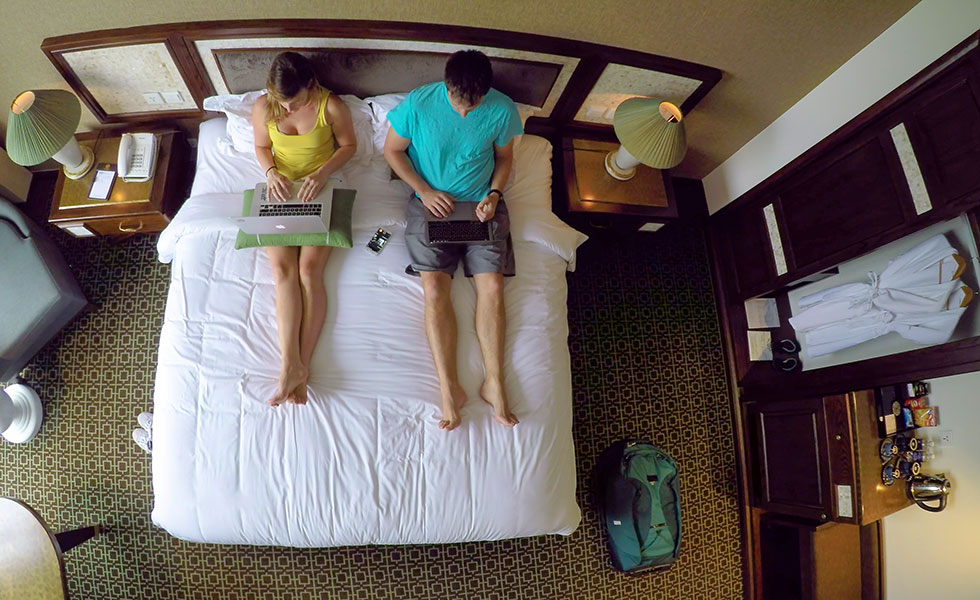2021, as a year of the Great Resignation, has shown us how freelancing is more important than traditional work today. Yet, that also brings one question – should you become a freelancer or an employee?
Statistics claim that approximately 4 million Americans have quit their jobs just in July 2021. But, have you ever wondered, where did all those workers go? What was their new career choice?
What is the difference between becoming a freelancer and an employee?
Everyone who has decided to leave their traditional 9 to 5 work must definitely think about the difference between becoming a freelancer and an employee. The main difference between the freelancer and an employee is that the freelancer is not tied to one company or employer. Instead, numerous freelancers worldwide work on different projects and with various clients. When it comes to payment, freelancers get paid mostly per project, but some also get paid daily. An employee gets a fixed paycheck every month.
For freelancers who work on creative tasks, it’s best to work completely alone and accept different contracts. Let’s say that you are a freelance copywriter. What would be your working choice? The best is to work in these two ways: either to set a fixed price per word or 100 words or to come up with your hourly rate. As an employee, you’ll usually have to agree together with one client or a company about your monthly fixed salary.
Freelancing also leaves a chance to work on it besides your regular job. Not all freelancers are full-time, or better said – freelancing is not their only source of income. Many work part-time only to improve their home budget. When it comes to employees, they probably won’t have time to work on some other tasks, which means a fixed home budget.
When it comes to taxes, many freelancers must calculate and pay their own taxes, although some freelancing platforms already take the percentage of afforded amounts of money. Employees usually don’t have to think about paying taxes because that will the company or an employer does.
Related Posts:
Employees that are hired by a certain company will work on preset tasks. When compared to freelancers, we can see that employees can’t choose when they will work – they’ll work when the company needs them. Getting paid monthly, weekly, or by fortnight may be good for some people who have just switched from regular 9 to 5 jobs and worry if they will be able to earn enough. Therefore, becoming an employee may offer some sort of security and safety.
Employees definitely have to follow more terms than freelance workers because they sign a contract where everything is strictly defined by a certain company or employer.
What are the pros and cons of becoming a freelancer?
The best thing about becoming a freelancer is that you’ll be able to set working hours by your own schedule. Freelancers also set their own rates of pay. Don’t like a certain project? No worries, you don’t have to accept it.
As said above already, freelancers can also build their careers aside from regular jobs. Being your own boss and doing what you love are definitely two more pluses of becoming a freelance worker.
Working from where you want and when you want is what flexibility looks like. Freelancers claim that their overall satisfaction in life has grown once they’ve gone remote.
A freelance worker can completely plan their own life in any wanted way! A freelance worker may decide to go on a holiday, but to still work from there – and no one will have anything against it. Clients don’t even have to know about it.

Of course, there are some cons of freelancing that definitely must be mentioned. One of the main minuses of being a freelance worker is that you don’t have a fixed income. For some people, this may bring feelings of worry and discomfort. It may happen that you have to plan how you spend your money. Sometimes, there’s not that much work so you’ll have to do something else aside.
Another minus would be that a freelancer can’t use all those benefits regular company employees have. Got sick? You can’t use paid rest. The conclusion – when you don’t work, you don’t get paid – at all!
In the end, it’s good to remind ourselves what the freelance lifestyle looks like. Most often, freelance remote workers work from home, and half of the day they spend alone. If you’re someone who is very sociable, this may not be a good option for you. Yet today we have many coworking places for everyone who enjoys the office atmosphere and for those who can’t have a peaceful and quiet environment because of other family members, mostly children.
The good and the bad about becoming an employee
Okay, now that we have looked at all those pros and cons of becoming a freelancer, let’s how an employee’s job and lifestyle look like. The best thing about becoming an employee is that you’ll get a guaranteed fixed income. This way, many workers can plan their life costs ahead and stick to their budget. The second-best thing would be that an employee is able to use all of the company’s benefits. Health insurance and pension contributions are of crucial importance for every worker. An employee is also able to use different discounts and perks offered by a certain company.
Even when you decide to leave your employee job position, you’ll still be protected for a while, which is often enough to help you overcome hard times while finding a new job.
We have mentioned that some people don’t like freelancing because it may be lonely, so working with a team may be another great reason why you should become an employee. Communicating with different people on a daily basis is what suits many people who have decided to become employees.
The bad thing about being an employee, when compared to freelancing, is limited flexibility. An employee won’t be able to choose between the projects and tasks they like or don’t like. An employee works on everything the company has prepared. Most often, workdays look the same, which is not suitable for creative personalities that love to work on their own and change tasks.
Another minus of working as an employee would be that you may get stuck with your earnings. Salaries may not raise as easily and fast as with freelancing. You’ll usually have to stick to one certain amount of money for a while. When you’ll try to raise your salary as an employee, you’ll probably have to work more or learn new skills.
Should I become a freelancer or an employee?
The answer lies within you. Think about how well you deal with financial insecurity. If you’re not scared of financial insecurity and if you have plans to raise your work rates as soon as possible, it’s a good idea to become a freelancer. People who are okay with a fixed salary that won’t be raised that easily and quickly but will offer financial stability should become employees.
The second thing you should keep in mind is how disciplined you are – are you capable of working all by yourself, setting deadlines, and finding the motivation to complete tasks on your own? Good at managing everything by yourself? If you can do all that, a freelance career is a great way to go.
Before becoming a freelancer, consider what your lifestyle looks like as well. If you’re very social and can’t imagine yourself working home alone, becoming an employee may sound like a better option.
Can you deal with calculating taxes all by yourself? If yes, become a freelancer. If not, and if you find it all complicated, become an employee and find your stability within a certain company.





